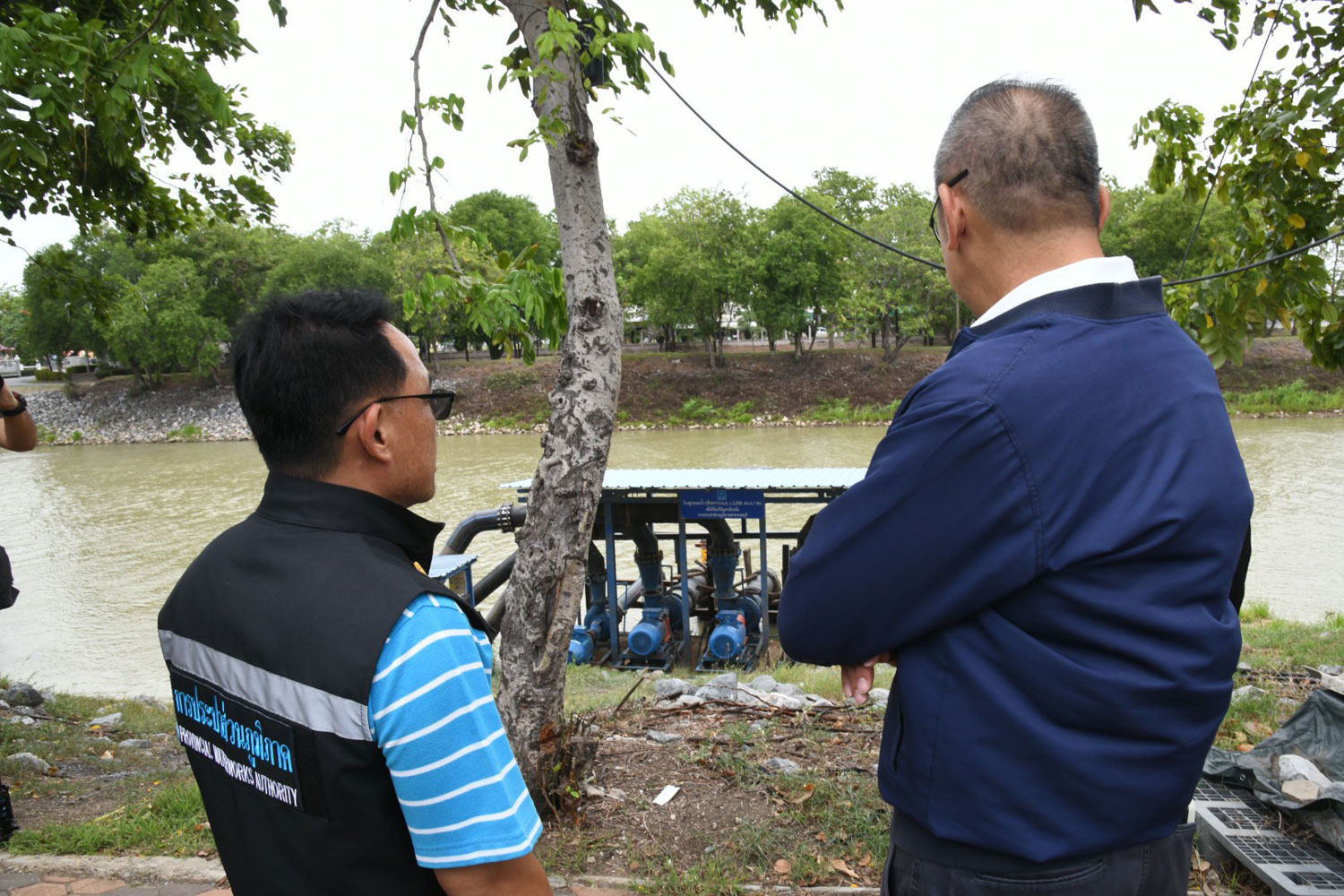
The government may consider announcing a suspension of rice farming to save water in the Central Plains region, says the Office of the National Water Resources (ONWR)
A water-crisis command centre could also be up to coordinate efforts to combat the impact of low rainfall, said Surasri Kidtimonton, the ONWR secretary-general.
Accumulated rainfall this year has fallen below the median range, leading to forecasts of a drier rainy season, he said on Tuesday.
The hardest-hit provinces will likely be those in the Central Plains region, dubbed the country’s rice belt, he added.
The region may face a 40% drop in accumulated precipitation this rainy season, possibly triggering widespread water shortages, Mr Surasri said.
Water levels are already running low in reservoirs at the four main dams — Bhumibol in Tak, Sirikit in Uttaradit, Kwae Noi Bamrung Dan in Phitsanulok and Pasak Jolasid in Lop Buri — which currently hold a combined 9,617 million cubic metres of water, or 39% of their storage capacity on average.
Moreover, only 2,921 million cubic metres of that water is useable at present, he added.
“What’s worrying is the El Nino phenomenon may extend right through to 2025. We have to plan nationwide water management prudently,” he said.
The heavily farmed Central Plains region uses a great deal of water for growing rice.
So far, rice is not being farmed on more than 11 million rai, with farmers who have not yet begun planting being urged to either delay their plans or switch to more drought-resistant plants.
A committee overseeing water allocation in the region’s river basins has been assessing the available water in numerous sources.
As far as water usage is concerned, the top priority must go to household consumption, followed by the diversion of water supplies to maintain natural ecological systems.
The committee is considering whether to announce the suspension of rice farming as the prospect of water shortages is growing, if measures currently in place are deemed insufficient to handle the problem.
The next step would be to issue an order from Prime Minister Prayut Chan-o-cha, in his capacity as chairman of the National Water Resources Committee, to set up a water-crisis command centre to combat drought.
Mr Surasri said that if necessary, the ONWR would ask the committee to order an extended suspension of rice farming in areas severely affected by water shortages.
After that, the office would seek cabinet approval for emergency response agencies such as the Interior Ministry and the military to integrate their assistance in flood-hit areas.
“It’s crucial that people use water sparingly,” the ONWR secretary-general said.
The Royal Irrigation Department has also been asked to store as much water as possible in reservoirs and dams, he added, despite the fact that several storms are forecast this and next month, which would boost the water levels in reservoirs.